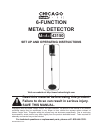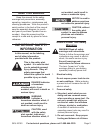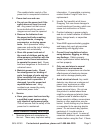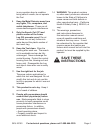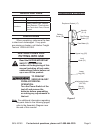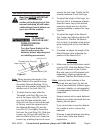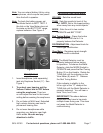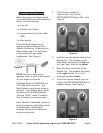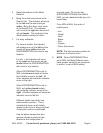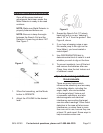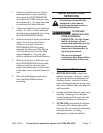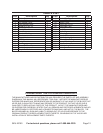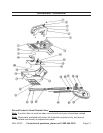
Page 9For technical questions, please call 1-800-444-3353.SKU 43150
Reset the balance of the Metal 5.
Detector.
Bring the nickel coins close to the 6.
Search Coil. The indicator will move
to the left and the sound will get
softer. Bring the silver coins close
to the Search Coil. The indicator
will move to the right and the sound
will get louder. The midpoint is the
discrimination setting for nickel.
For easy reference: 7.
For ferrous metals, the indicator
will always move to the left and the
sound will grow softer when the
DISCRIMINATION dial is set to any
location.
For silver, the indicator will move
to the right and the sound will get
louder when the DISCRIMINATION
dial is set to any location.
When DISCRIMINATION is set to
MIN, only ferrous metals will make
the indicator move to the left. All
other samples will make the indicator
move to the right.
When DISCRIMINATION is set to
MAX, only silver-based metals
will make the indicator move to the
right. All other samples will make the
indicator move to the left.
Different metals have their own
discrimination position. This is
important to know, as all metals
appear in the form of alloys and their
composition can be complicated.
Use the above sample test as a
general reference guide to help
determine the composition of
a buried metal. By turning the
DISCRIMINATION dial from MIN to
MAX, you can determine the type of a
buried item.
From MIN to MAX, the order of
metals goes:
- Iron
- Nickel
- Gold
- Brass
- Zinc,
- Copper
- Silver (Aluminum)
NOTE: The discrimination position of
aluminum is close to silver.
NOTE:8. When DISCRIMINATION is
set to MIN, the Metal Detector does
have greater sensitivity as compared
to when it is set at MAX setting.



